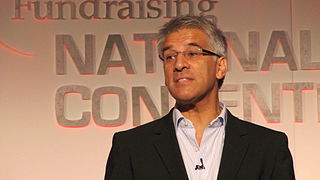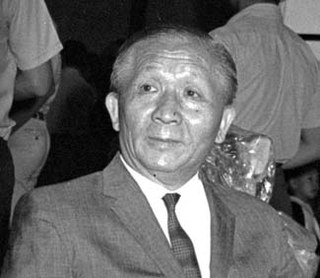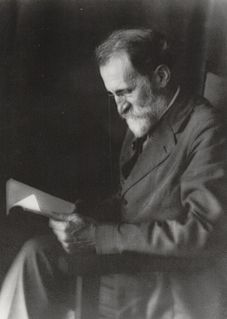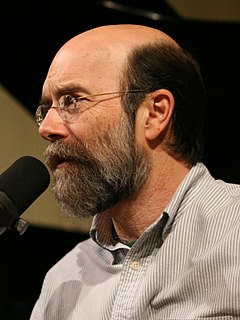A Quote by Steve Chalke
In The Lost Message of Jesus I claim that penal substitution is tantamount to 'child abuse - a vengeful Father punishing his Son for an offence he has not even committed.' Though the sheer bluntness of this imagery (not original to me of course) might shock some, in truth, it is only a stark 'unmasking' of the violent, pre-Christian thinking behind such a theology.
Related Quotes
There is the view I call penal non-substitution, or the penal example view. (It is also called the Governmental View in textbooks of theology.) This is often associated with Arminian theology stemming from the great Dutch jurist Hugo Grotius. However, the view was taken up by [Jonathan] Edwards's disciples in New England, who developed a Calvinistic strand of the doctrine.
Seminary also introduced me to the historical study of Jesus and Christian origins. I learned from my professors and the readings they assigned that Jesus almost certainly was not born of a virgin, did not think of himself as the Son of God, and did not see his purpose as dying for the sins of the world. .. I also found the claim that Jesus and Christianity were the only way of salvation to be troublesome.
I'm the son of a pastor and evangelist and I've described many times how my father, when I was a child, was an alcoholic. He was not a Christian. And my father left my mother and left me when I was just three years old. And someone invited him to Clay Road Baptist Church. And he gave his heart to Jesus and it turned him around. And he got on a plane and he flew back to my mother and me.
The Christian claim is: Nothing explains the facts better than an all-powerful, all-knowing, omnipresent god creating the universe and sending Jesus to spread his message. This is about as remarkable a claim as could be stated, and yet it is tossed out lightly. Christians seem to imagine that "God did it" is as plausible as the natural explanation that stories grow with the retelling. The Christian has the burden of proof, and it's an enormous burden given this enormous claim.
This book will expose the sins of the fathers and the vicious abuse of the Jewish people. 'In Defense of Israel' will shake Christian theology. It scripturally proves that the Jewish people as a whole did not reject Jesus as Messiah. It will also prove that Jesus did not come to earth to be the Messiah. It will prove that there was a 'Calvary conspiracy' between Rome, the high priest, and Herod to execute Jesus as an insurrectionist too dangerous to live. Since Jesus refused by word and deed to claim to be the Messiah, how can the Jews be blamed for rejecting what was never offered?
Jesus is humble, and His servants must not be proud; but Jesus was never mean or cowardly, nor must His servants be. There was no braver man than Christ. He could stoop to save a soul, but He would stoop to nothing by which His character might be compromised or truth and righteousness insulted. To preach the Gospel boldly is to deliver it as such a message ought to be delivered. Blush to preach of a dying Saviour? Apologize for talking about the Son of God condescending to be made man that He might redeem us from all iniquity? Never!
A mother has a unique perspective. Nobody sees the life of the child the way the child’s mother does—not even the father. This is Mary’s perspective of Jesus life. It seems to me that every genuine Christian, not just Catholics, should be interested in that perspective—and not just interested, but fascinated. In the rosary we ponder the life of Jesus through the eyes of his mother. This is an incredibly powerful experience if we enter into it fully
My conscience does not render a positive verdict in God’s courtroom when I look inside myself. The only reason I can sleep well at night is that even though my heart is filled with corruption and even though I am not doing my best to please him, I have in heaven at the Father’s right hand the beloved Son, who has not only done his best for himself but has fulfilled all righteousness for me in my place.
The Son is called the Father; so the Son must be the Father. We must realize this fact. There are some who say that He is called the Father, but He is not really the Father. But how could He be called the Father and yet not be the Father?... In the place where no man can approach Him (I Tim. 6:16), God is the Father. When He comes forth to manifest Himself, He is the Son. So, a Son is given, yet His name is called 'The everlasting Father.' This very Son who has been given to us is the very Father.
Jesus was not a whisperer. No one ever saw Him close to His neighbor's ear, looking stealthily around lest some one should overhear what He was going to say. He stood upright, looked men squarely and kindly in the eye, and spoke what He had to say right out, boldly, frankly, that the whole world might hear; and when He did speak privately to His disciples, He told them to shout it from the housetops. 'Truth fears nothing but concealment,' said an old Church Father, and Jesus spake only the truth.
In every system of theology, therefore, there is a chapter De libero arbitrio. This is a question which every theologian finds in his path, and which he must dispose of; and on the manner in which it is determined depends his theology, and of course his religion, so far as his theology is to him a truth and reality
Our Lord did not want to remain on earth only through His grace, His truth or His words; He remains in person. We possess the same Lord Jesus Christ Who lived in Judea, although under a different form of life. He has put on a sacramental garment, but He does not cease being Jesus, the Son of God and the Son of Mary.
One of the most important lessons the Lord has taught me is that you are not your gift. That is, you are not defined by what you do or create. Jesus is a wonderful example of this. He would not allow the crowd to define Him by His considerable gifts, even though they tried to do so. Jesus always points away from Himself and His gifts and thereby wins praise for the Father. We are not our gifts. We are called to give more. Like Jesus, we are called to give ourselves. That is the real purpose behind our gifts; they are vehicles for giving the self.



































